Welcome to The Power of Youth Work: Forging a sustainable and peaceful common future, the 4th Commonwealth Conference on Youth Work.
This year the conference was held in person, in Reading UK, and virtually.
The conference is open to anyone with an interest in youth work across the Commonwealth and would be of particular interest to youth workers, academics, policy makers and practitioners.
Please login or register to watch recordings of the conference content.
 July 10, 2023 14:00
July 10, 2023 14:00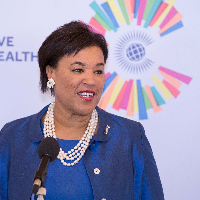
The Rt Hon Patricia Scotland KC
Secretary-General of the Commonwealth
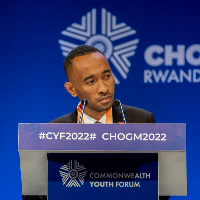
Kim Allen
Chairperson of the Commonwealth Youth Council
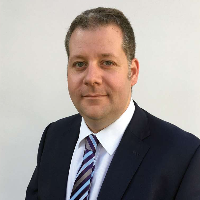
Leigh Middleton
Chief Executive, National Youth Agency
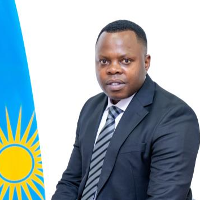
Honourable Abdallah Utumatwishima
Minister of Youth, Government of Rwanda, Commonwealth Chair-in-Office and Co-Chair of the Commonwealth Youth Ministerial Task Force
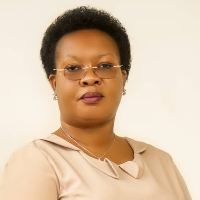
Honourable Nyirabashitsi Sarah Mateke
Minister of State for Youth and Children Affairs in the Ministry of Gender, Labour and Social Development- Kampala Uganda
Opening ceremony to mark the start of The Power of Youth Work: Forging a Sustainable and Peaceful Common Future - the 4th Commonwealth Conference on Youth Work.
 July 10, 2023 15:45
July 10, 2023 15:45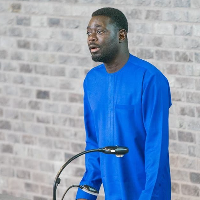
Professor Momodou Sallah
Director, Centre for Academic Innovation, and Professor of Teaching and Learning, De Montfort University, UK
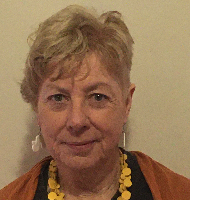
Robyn Broadbent
Emeritus Professor, Victoria University and Chair of the Commonwealth Alliance of Youth Worker Associations
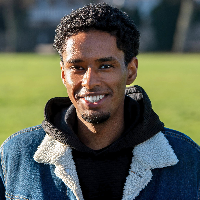
Yahye Abdi
Co-Chair for Hope Collective Youth Management Group
Global Youth Work
Contexts and challenges for youth work around the world, and connecting the global to local, and young people’s lives
_______________________________________________________
Commonwealth Youth Work
Robyn Broadbent, Emeritus Professor Victoria University and Chair of the Commonwealth Alliance of Youth Worker Association
Youth work across Commonwealth member nations, tensions and challenges and opportunities for youth workers to collaborate.
_______________________________________________________
Young people and Communities
Exploring the power of youth and community work with young people to influence and shape change locally and nationally.
_______________________________________________________
Youth Work in Times of Crisis
Youth work practice in the Ukraine has radically changed due to the war. Exploring the power of youth work in crisis situations, and the role it plays in supporting young people both in war and peace.
 July 10, 2023 18:00
July 10, 2023 18:00The Armoured Heart sculpture was created by artist Stuart Melrose with young people from Reading as an art project to educate young people on the risks of knife crime and encourage them to make positive choices. The sculpture was installed in May 2023 and heralds an outreach programme, beginning in July 2023, to educate on the risks and consequences of knife crime.
Meet in reception area (can you suggest a space) - 6pm
There will be a coach returning us to the university after the visit or you can stay at the Oracle Shopping Centre and make your own way back to the campus.
 July 11, 2023 09:00
July 11, 2023 09:00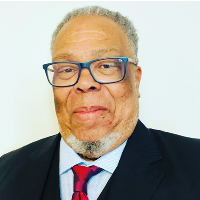
Dr. Henry Charles
Chair of the Commonwealth Year of the Youth Advisory Committee
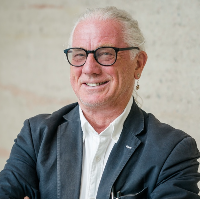
Dr Howard Williamson CVO CBE
Professor of European Youth Policy at the University of South Wales
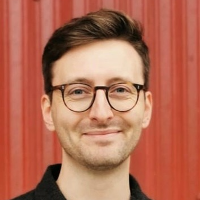
Jacob Diggle
UK Youth
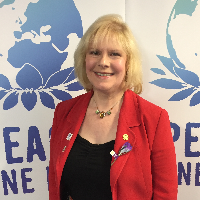
Eve Conway
Rotary International Director
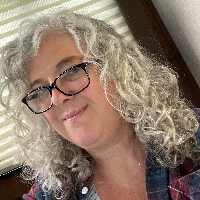
Kelly Shaw
Nova Scotia Community College (Canada)
Evolving Youth Work Policy Across the Globe
This presentation will explore the historic context of youth work policy across the globe, with specific focus on the Commonwealth context. Describing the interplay between the policy environment and practice in communities with young people, and the potential for influencing change.
_______________________________________________________
Social & Economic Value of Youth Work
This panel will explore the social and economic value of young people to government policy and those that seeks to support. How the research findings can be used to shape policy change and drive investment, and how youth workers could capitalise on the research for influence and advocacy.
 July 11, 2023 10:30
July 11, 2023 10:30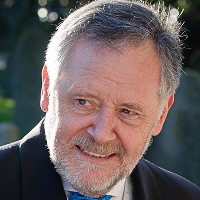
Revd David Howell
Consultant, UK Christian Youth Work Consortium
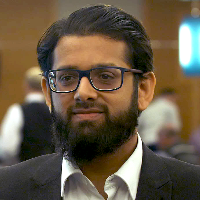
Ayub Seedat
COO, Here For Youth
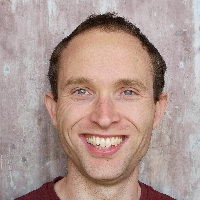
Benedict Sutton
Young Life International, Operations Director - UK & Ireland & Operations Project Specialist - Europe
The Mosque - A Safe Space For Faith-Inspired Youth Work
Mosques have a historically long track record of positive engagement with civil society - from foodbanks and humanitarian relief to homeless shelters and covid vaccine clinics! Research has shown that young people need a safe space that is local to them, staffed by culturally competent youth workers or trusted adults. In this breakout session, explore how to unlock the potential of Mosques as they are, for the most part, the most underutilised resource in the community - and not just for Muslims! Explore the eight elements of the Youth Engagement Framework built by Here For Youth from over a decade or more of direct youth and community engagement. By establishing the Mosque as the local 'Youth Hubb', they can engage and empower teenagers to be confident in their identity by making it a safe and loving space -a place where they can meet their peers as well as local mentors/role models that help them develop strong positive character traits that set them up for a lifetime of success.
_____________________________________________________
Safer systems and safer practice for youth work in private dwellings
There is a rich tradition of youth work in private dwellings - arguably drawing on the best of youth work principles and practices: relationships, voluntary participation and informal education. The state has used private dwellings as a key element of care, through fostering especially, and the faith and voluntary sectors have been using homes as an essential learning and nurture space for generations. Recognising that such work is not without risks, the Christian youth work community in the UK is currently formulating guidelines for policy and safer working practices which will seek to ensure that young people are kept safe and gain the most in their personal, social and spiritual development.
 July 11, 2023 10:30
July 11, 2023 10:30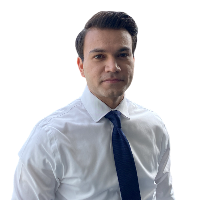
Qasim Farasat
The Institute for Sustainable Development and Cooperation, Co-Founder
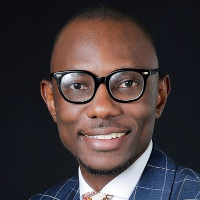
Olalekan Oshunkoya
Citizen Commons International, Executive Director

Oluwabukola Adimula
Communications Citizen Commons International, Program Associate
Youth Political Participation and Engagement: A Pathway to a Peaceful and Sustainable Future in the Commonwealth
This presentation examines the barriers to youth political participation in the Commonwealth, particularly the Asian region and proposes strategies to overcome these obstacles. It underscores the importance of youth engagement in policy-making at all government levels. Through various initiatives, such as establishing the first-ever official National Youth Council in Pakistan and launching the “Asian Youth Union,” my study presents a path to enhance youth political engagement and cooperation. The approach aligns with the conference’s theme: “Collectivism and solidarity across geographies,” and contributes to building a peaceful, inclusive, and sustainable future.
___________________________________________________
Youth Leaders as Youth Workers: Exploring the contributions of youth leaders to the positive youth development – A case study of the Youth Conversation for New Nigeria
Recognising that youth leaders are a very integral part of the youth work profession, they are often a key player in local, regional national as well as international initiatives to achieve positive youth development. Taking evidence from the youth leaders who supported the Youth Conversations for a New Nigeria, a 2022 nationwide consultation with young Nigerians on the future of Nigeria, this paper seeks to explore how youth leaders in their everyday efforts as activists, civic leaders, peer leaders, volunteers, community mobilisers, program administrators, innovators and policy advocates are actively promoting positive youth development and often effectively functioning in many cases as youth workers. In actively pursuing their commitment to lead their peers, promote human rights, active citizenships, rule of law, and contribute to fostering positive youth development in their communities, youth leaders often acquire skills and competencies that are required and often needed to pursue a career as youth workers.
 July 11, 2023 10:30
July 11, 2023 10:30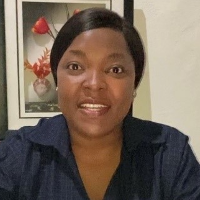
Adwoa Difie Boakye-Mensah
Associate Debt Adviser, Commonwealth Secretariat

Delia Cox
Public Debt Management Adviser, Commonwealth Secretariat
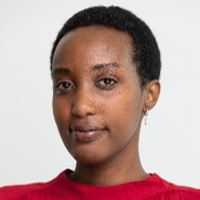
Tesi Uwibambe
Programme Assistant with the Debt Management Unit, Commonwealth Secretariat
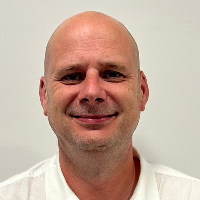
Colin MacFarlane
YMCA Scotland, National Programme Director
Public Debt and Youth Development: Reimagining the Future for Young People by Ensuring Sustainable Public Debt Management
This session presents findings of a recent study on the impact of public debt on youth development within the Commonwealth. We take a deep dive into government’s fiscal policies and how the resultant debt burden can be detrimental to a country’s youth development, thereby undermining the long-term resilience and sustainability of an economy. It discusses what role government other development actors, and the youth can play to ensure debt sustainability and youth development across the Commonwealth.
________________________________________________
Exploring the role of Youth Work in the Commonwealth: Challenges and Opportunities for Social and Economic Development
This presentation explores the role of youth work in the Commonwealth, with a focus on the challenges and opportunities facing young people in the region. Drawing on case studies from different Commonwealth countries, this presentation analysis the ways in which youth work can contribute to social and economic development and promote youth empowerment. The challenges faced by youth workers, including limited resources, lack of recognition, and political instability, will also be discussed.
________________________________________________
Community of Impact for Employment, (COI) and Entrepreneurship
YMCA Scotland, working in partnership with the World Alliance of YMCA’s and a range of partner YMCA’s from around the world the YMCA has developed a Community of Impact for Employment, (COI) and Entrepreneurship. The COI was initially developed to bring together the knowledge and skills of youth work practitioners, working collaboratively across numerous geographies, to better understand the global issues young people are facing in employment & entrepreneurship, (E&E).
 July 11, 2023 10:30
July 11, 2023 10:30 July 11, 2023 10:30
July 11, 2023 10:30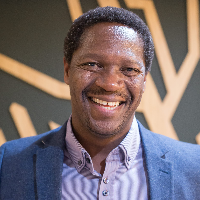
Munya Badze
NHS Kent and Medway
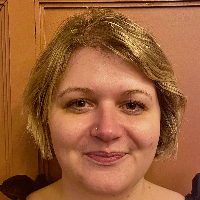
Tamsyn Phillips
NHS Kent and Medway
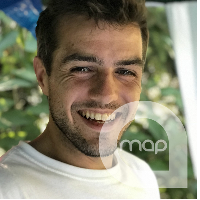
Danny Whitehouse
Head of Youth Work, MAP

Taiwo Olawehinmi
Commonwealth Secretariat
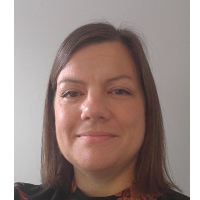
Caroline Brooks
Commonwealth Secretariat, Sports & SDG Project Manager
Building partnerships using the youth voice to support positive outcomes for young people; an approach from NHS Kent and Medway
Our interactive session will engage the audience in how we place the youth voice and lived experience roles at the heart of our programme design and delivery. Through NHS Kent and Medway’s Integrated Care Board in the UK, we are developing collaborative system partnerships with a wide range of organisations. We will share a summary of the projects we deliver that are enabling greater partnerships to support young people's health and skills outcomes. We will demonstrate how we practice non-tokenistic engagement and co-production with young people, their families, decision-makers, academics and practitioners (to name a few!). We are looking forward to meeting you all!
_________________________________________________________
The Impact of Participation in Decision-Making on Young People’s Mental Health and Wellbeing: an Evaluation of MAP’s Youth Voice Programmes
It’s relatively easy to evidence that youth services are better when young people are involved in shaping them. What’s not always obvious, however, is that people’s wellbeing improves when they are involved in changemaking activities. To examine this link, we commissioned an independent research consultant to evaluate our youth voice programmes. At this breakout session, you will hear about the report’s findings, and hopefully leave with inspiration to create similar kinds of opportunities in your area.
_________________________________________________________
Youth-Led Consultations For the Development of The Commonwealth Non-Communicable Diseases Strategy and Implementation Plan
Caroline Brookes, Sport and SDG Programme Manager, Commonwealth Secretariat
The Youth-Led Consultations for the Commonwealth Non-Communicable Diseases (NCD) Strategy and Implementation Plan was part of a larger process to develop a guiding framework to support Commonwealth member countries to tackle the root causes of one of the most significant public health challenges we face today - NCDs. This framework seeks to embed positive lifestyle activities among citizens of commonwealth member states with a primary focus on young people. Part of the problem the framework is trying to solve is the importance of ensuring there are healthy habits in terms of diet and physical activity built into the daily lives of people from a young age that then become habits for life. Therefore, recognizing youth as an important stakeholder within this process, we were keen for young people to lead on the design and implementation of the consultation and participatory process that would directly inform the strategic activities prioritized as part of the guiding framework. The intention behind the NCD Guiding Framework is that it would be youth-led in terms of its focus and the selection of the priority workstreams. This article seeks to describe the design and implementation of the participatory process used in the development of this guiding framework.
 July 11, 2023 10:30
July 11, 2023 10:30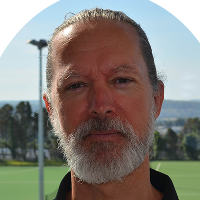
Professor Jon Ord
Plymouth Marjon University
This session will provide a detailed examination of the concept of curriculum in youth work. It will present a comparison from the UK- which has recently published a new National Youth Work Curriculum - and Finland which has undertaken a ten-year action research project to develop youth work curriculum in municipal youth work organisations. The relative merits of both approaches will be discussed in the context of the differing policy contexts. It will demonstrate how the development of a youth work curriculum enables youth workers to establish and communicate their unique forms of practice and the processes that are utilized.
 July 11, 2023 10:30
July 11, 2023 10:30Young People, Situated Learning and Peace Praxis at the Margins of Everyday Life
Young people, school, family, and community engagement is critical to addressing the community challenge of youth conflict and violence in contexts of high marginalisation and vulnerability. Young people are crucial actors in this, yet their contributions towards peaceful communities in schools and beyond are often overlooked. Using an innovative approach to school-based work and community work, the central aims of this project were to explore how young people understand and enact peace as part of their everyday life, and to strengthen cohesion between young people and different stakeholders and communities in response to the community challenges of youth peace, violence, and conflict.
 July 11, 2023 12:45
July 11, 2023 12:45Please join us for a 15 minute introduction to Collective voices of youth workers
 July 11, 2023 13:00
July 11, 2023 13:00 July 11, 2023 13:00
July 11, 2023 13:00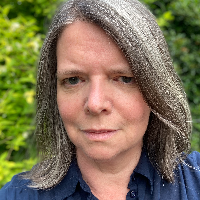
Gill Gracie
YouthLink Scotland
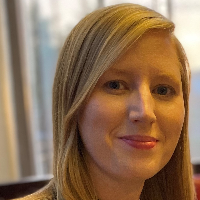
Dr Amy Calder
YouthLink Scotland
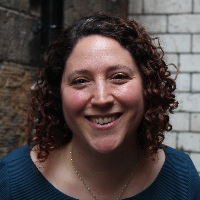
Liz Green
YouthLink Scotland
The power of youth work lies in its flexible, relational, individual approach, but these same strengths create a unique kind of challenge when we try to describe and quantify the sector’s collective impact. As Scotland’s National Youth Work Agency, YouthLink Scotland, has been supporting a national consultation with practitioners and young people to explore and more confidently articulate the difference that youth work makes across diverse settings, using skills as a common language. In this workshop we’ll share our journey towards Scotland’s National Youth Work Outcomes and Skills Framework , including the important contribution made by young people using an innovative participatory research methodology. And we’ll aim to create space for a lively discussion about your own experiences of impact measurement, and the challenges of developing evaluation practice that aligns with youth work values and principles.
 July 11, 2023 13:00
July 11, 2023 13:00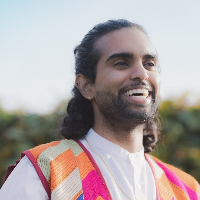
Sabah Choudrey
Colours Youth Network
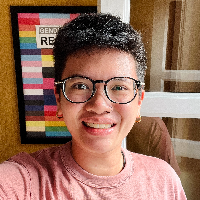
Alexander Teh
Youth Counsellor, Oogachaga
An Introduction to Gender, Sexuality and Solidarity
Why is LGBTQ inclusion in youth work important? Where do our organisational values align (or even clash) with LGBTQ inclusion? And how does a unicorn fit into all of this? Join Sabah to understand what’s happening for LGBTQ youth in UK, to unpack gender, sexuality and solidarity, and share what celebrating LGBTQ youth looks like in practice. An Introduction to Gender, Sexuality and Solidarity.
______________________________________________
Criminals No More! Empowering LGBTQ+ Youth in Singapore for the future
Local context:
In November 2022, the Parliament of Singapore repealed section 377A of the Penal Code, effectively decriminalising “gross indecency” or consensual relationships between adult men in private and public.
Oogachaga is Singapore’s most established, community-based, non-profit professional organisation working with lesbian, gay, bisexual, transgender, queer, questioning and gender-diverse (LGBTQ+) individuals, couples and families since 1999. Oogachaga is a member of The Commonwealth Equality Network (TCEN), since 2017.
About the YOUth programme:
In 2020, Oogachaga conducted an online community survey called “Oogachaga Needs YOUth” to analyse the needs of LGBTQ+ youth aged 16 to 29 in Singapore, and identify how Oogachaga could meet those needs. More than 500 valid responses were received. As a result, the YOUth Programme was launched in 2021.
For more details about the YOUth programme: https://oogachaga.com/youth-programme
Proposed session objectives:
· Share process of developing a community-based programme for LGBTQ+ youth, including recruitment of peer youth leaders through the BOOST programme
· Offer perspectives and experiences of developing new initiatives in the midst of challenging circumstances (COVID-19, conservative social attitudes & criminalisation before 2022)
· Facilitate a mutual learning experience through inviting attendees to share their own experiences of youth engagement, empowerment, and support in their respective communities
Relevant publications and materials:
“Oogachaga Needs YOUth”: Summary findings from our local LGBTQ+ youth community needs assessment
https://www.instagram.com/p/CMgZfmfrmUZ/?img_index=1
https://www.instagram.com/p/CMoFuqaBhlo/?img_index=1
https://www.instagram.com/p/CMv1rBbsQwC/?img_index=1
“Let’s Talk About Sex: A community survey on LGBTQ+ youth sexual health in Singapore”
https://oogachaga.com/lets-talk-about-sex
“I’ll Walk With You: A guide for parents of transgender children”
 July 11, 2023 13:00
July 11, 2023 13:00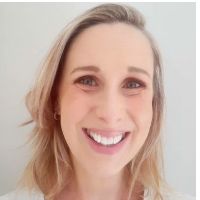
Dorothy Hodgson,
Principal Policy Officer, Greater London Authority
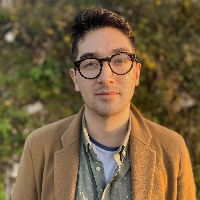
Matthew Walsham
Policy Lead, Partnership for Young London

TeHilla Maloney
Research Manager, Caribbean Regional Youth Council
Voices of the Future – Peer Research Into Widening Access Into Youth Services
The Young Londoners Research Programme (YLRP) was funded by the Mayor of London to ensure young people’s voices are at the heart of policy and programming for young Londoners. The programme empowered young people take the lead, designing their own research to inform the Mayor’s New Deal for Young People mission and future service planning and funding in their own communities. Supported by Partnership for Young London, nine groups of young people were trained in the research process and supported to create their own research question, methods, and conduct their own fieldwork and analysis. The groups focused on gaining insight from some of London’s least heard young people, and those least likely to take part in youth services. Their findings and recommendations are as diverse as the city they represent, reflecting on the needs of different groups such as autistic young people, mental health services, and care experienced young people. We will share their key findings, but also our learning on how young people can be supported to meaningfully participate in research, policy, and the decisions that impact their lives.
_________________________________________________________
Harnessing Youth Power: Reflections on Youth Participatory Action Research and Outcome Mobilization
How can we utilise the skills, experiences and collective action of young persons to address issues that plague inclusive and sustainable development in the global south? This presentation seeks to address this question through the lens of young persons from the Caribbean and their reflections about conducting research surrounding youth unemployment and life skills development as the basis for youth empowerment.
 July 11, 2023 13:00
July 11, 2023 13:00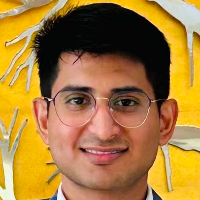
Abhishek Sharma
Ph.D. student in Korean Studies at the University of Delhi
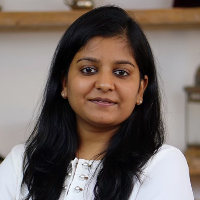
Saumya Aggarwal
Co-founder and CEO of Youth for Peace International
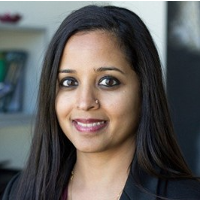
Shubha Kumar
University of Southern California (USC), Associate Professor
Building Evidence for Peacebuilding Investments: Evaluating the Social Return on Investment (SROI) of Youth-Led and Youth-Supporting Peacebuilding Programs
The youth, peace and security (YPS) agenda is gaining momentum across policy, funding and practice communities. To match this growing interest, the YPS agenda requires a change in the mindset of how we think of impact and how we quantify that impact as it relates to youth-led and adult-supported interventions that impact the lives of people in youthful majority countries. Measuring the right impacts changes the narrative and puts power where it matters – in the hands of young people locally, something critical in understanding the role of young people in preventing violence and sustaining peace. The international community critically needs a way to assess the impacts of youth-led and youth-supporting peacebuilding interventions to better support and sustain these efforts.
______________________________________________________
Pushing the Boundaries: Mainstreaming of Youth’s Perspectives through Youth, Peace, and Security (YPS) Agenda in India
Saumya Aggarwal is the co-founder and CEO of Youth for Peace International
The research aims to address the critical need for effective strategies to promote mental health among law Students pursuing the Bar Professional course and to understand the effects of mental health issues of students in this domain.Rationale: Numerous studies have highlighted the prevalence of mental health issues among law students pursuing the bar vocational course. However, in the African region, specifically at the Gambia Law School, there is a dearth of research examining the mental health challenges faced by students in this program. This research project aims to address this knowledge gap and shed light on the mental health issues experienced by law students at the Gambia Law School. Additionally, it recognizes the potential of youth work interventions in addressing these challenges and seeks to explore innovative approaches and best practices that can be implemented in the field of legal education.The study intends to investigate the specific ways in which youth work interventions can support the mental well-being of law students. By examining the unique contributions that youth work can make in this context, the research aims to identify strategies that promote mental well-being, foster resilience, and create a supportive environment for law students. It seeks to understand the experiences and perspectives of law students and youth work practitioners in relation to the mental health challenges encountered during the bar vocational course.This research project holds significant implications for the well-being and academic success of law students. By uncovering the specific mental health issues faced by students at the Gambia Law School, it will provide valuable insights into the development of targeted interventions and support systems. It will also contribute to a growing body of knowledge on the intersection of legal education and mental health, particularly in the African context. The findings will inform the implementation of evidence-based strategies that promote mental well-being among law students and strengthen the role of youth work in supporting their needs. Ultimately, this research will contribute to fostering a healthier and more resilient academic environment, paving the way for a sustainable future for law students in The Gambia.Rationale: Studies assert that law students pursuing the bar vocational course are faced with several mental health issues. In the African region, there is no study on mental health issues of students at the bar professional training course. This research will be conducted to respond to the potential Mental Health Challenges among law students at the Gambia Law School and the recognition of youth work in addressing this issue. The study aims to investigate the specific ways in which youth work interventions can support the mental well-being of law students, and to identify innovative approaches and best practices that can be adopted in the field.
 July 11, 2023 13:00
July 11, 2023 13:00
Fin Cullen
Programme Director for the BA Education Studies and the MA Education, Culture & Society
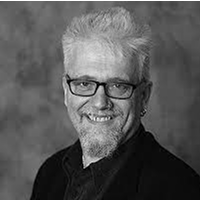
Professor Mike Seal
PALYCW
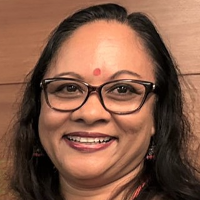
Rajni Chand
University of South Pacific, Director Centre for Flexible Learning
Balasubramanyam Chandramohan
Senior Research Felllow, Institute of Commonwealth Studies, School of Advanced Study, University of London
Is there a future for youth work training in Higher Education in the UK?
Professional training for education and care professions, including youth work, in Higher Education have faced a recruitment and retention crisis with uncertainty regarding workforce planning and the quality and direction of training (Baginsky & Manthorpe, 2016, Seal, 2019). A variety of new routes to qualification have been created over the past two decades, including fast track routes in England and more recently, the Degree apprenticeship (Stone & Worlsey, 2022). Such innovations have received a mixed reception from the field. Authors have suggested these approaches potentially squeeze out traditional university-based routes (Seal, 2019). The number of HEi's delivering Youth and Community Work Training has halved in the last few years (NYA, 2022). To make up for losing numbers many courses have diversified, some running non qualifying courses alongside qualifying ones, others having pathways, faith based and otherwise, and a plethora of short courses. This paper will explore whether these developments represent innovative adaptation, or diluting fragmentation.
________________________________________________________
Pacific Partnerships for Youth Empowerment and Resilience: how PACFOLD and COL are harnessing the power of Open Distance and Flexible Learning (ODFL)
The Pacific island nations are confronted with two significant challenges. The first is to anticipate and mitigate the effects of climate change and to build resilience in their countries and institutions. The second is to train their youth for the emerging world of work, where sustainable skills are essential for employability and enterprise development.
The Pacific Centre for Flexible and Open Learning for Development (PACFOLD), a collaborative center based at the University of the South Pacific and operated in partnership with the Commonwealth of Learning (COL), is actively addressing both challenges. PACFOLD is helping institutions build resilience in the face of climate disasters and pandemics. It is also leading a multi-stakeholder effort with COL to build skills among youth in the region, involving academia, institutes for teacher training as well as technical training, and community-based organizations in nine Commonwealth small island developing states.
Since the Covid-19 closures, PACFOLD has partnered with COL to build capacities among youth in these nine countries on a wide range of skills, from soap making to organic food processing. Their emphasis is on reaching out to youth, including young women and those with disabilities, using an inclusive approach through open, distance, and flexible learning. To increase its reach, they have conducted a detailed analysis of internet connectivity in these countries and have used the insights to improve schedules of delivery. The partners have also gathered analytic data from deployed learning management systems.
Over the past two years, PACFOLD and COL have trained approximately 650 youths in skills and leadership development and about 4000 teachers (mostly young) to use Open Educational Resources to improve teaching quality. They have also published an online toolkit for Technical and Vocational Education and Training (TVET) that has about 5000 users connected with youth training in skills. This effort is supported by the Ministry of Foreign Affairs and Trade of New Zealand and has undergone an independent mid-term evaluation indicating that stakeholders believe their resilience has improved.
 July 11, 2023 13:00
July 11, 2023 13:00The Positive Impacts of Employing Young People; The Individual and the Organisation
The workshop will begin with the definition of young people this will be the age at which a young person leaves school and can participate in full-time work which is sixteen (Gov.uk, 2023) and up to the age of twenty-five. The focus of this workshop will be looking at young people from low socioeconomic backgrounds who may face unemployment and deprivation. This could lead to lack of future opportunities for them. This can also be seen as cultural, social and economic capital, meaning the less capital presented to you, the less likely you are to ‘succeed’ (Biressi & Nunn, 2013). It is our role as youth workers and employers to give young people these opportunities (Buchroth & Parkin, 2010).
 July 11, 2023 15:00
July 11, 2023 15:00 July 11, 2023 15:00
July 11, 2023 15:00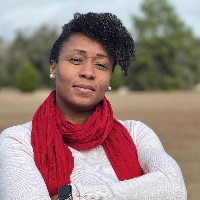
TanYa Merrick
Jamaica Professional Youth Workers Association
Relevance over Access
Relevance Over Access is a merger session combining the strategies used by the Jamaica Professional Youth Workers Association to sustain itself as a social enterprise vested in professionalizing youth development as a practice in Jamaica. The session looks at the gaps that exist in training between the degree program and the real context of youth workers and how the JPYWA has evolved in designing and delivering training to fill those gaps and build the capacity of the youth development workforce. The session hopes to help other groups with varying sociopolitical and resource realities by providing lessons learned to better respond to the needs of the formal organization of the youth work groups and capacity building of a wide cross-section of stakeholders involved in working with young people.
JPYWA Website: Youthdevelopmentworkja.org
YouTube:
https://www.youtube.com/watch?v=yZGKML3a4Ys&t=37s
https://www.youtube.com/watch?v=sx0hfeBE4Io
https://www.youtube.com/watch?v=yZGKML3a4Ys
https://www.youtube.com/watch?v=SApPoU32Xi8
_____________________________________________________
The challenges faced by student youth workers during Work-Integrated Learning at Secure Care Centre
Student youth workers experience different challenges during their Work-Integrated Learning (WIL) placements. These student youth workers face severe challenges while doing their WIL at youth residential care centres, in particular the secure care centres that focus on youth delinquency. This paper is a phenomenological account of eleven female and male student youth workers aged between 22 and 27 on their challenges during WIL Secure Care Centres (SCC). The study used purposive sampling, a non-probability sampling procedure to select the participants and semi-structured interviews were administered as a data collection method. The findings of this study revealed that student youth workers are exposed to myriad challenging situations namely deficient safety and security and insufficient support from their WIL mentors. These challenges compromised the quality and effectiveness of students' experiential learning in what way a bit of an explanation. Consequently, the findings implied that the challenges facing student youth workers during WIL hamper them from effectively honing their skills and integrating the theory they have learnt in the classroom with real-world situations. Recommendations on addressing the challenges faced by student youth workers during WIL were given.
 July 11, 2023 15:00
July 11, 2023 15:00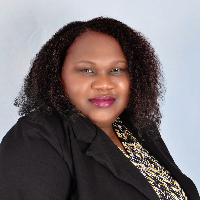
Jasmine Thomas
Director for the Department of Youth Affairs, Turks and Caicos Islands

Shanice Webb
Association of Youth Development Professionals, Trinidad & Tobago
The revitalization of Youth Work in Turks and Caicos Islands
Since the inception of the Department of Youth Affairs in 1995, nearly thirty years later there has been many strides in professionalization of youth work in Turks and Caicos Islands. These include the implementation of two national youth polices, professional training and strategic partnerships. Therefore, why hasn’t the profile and professionalization of youth work taken off exponentially as other careers? How do we as youth development professionals exhilarate the momentum of youth work, and create a renewed perspective in order to make youth work sustainable in TCI?
_________________________________________________________
Contextualising Youth Development Work in the Caribbean, with special reference to Trinidad and Tobago
Increasingly, youth work has become a professionalised domain of work and scholarship on its own terms. The embrace of the Commonwealth Youth Mainstreaming frameworks in government, implementation of national youth policies aligned with regional and global development goals and institutionalisation of youth research at The University of the West Indies have contributed to the transformation of the youth development and youth worker context in the Caribbean. Through a case study, which illustrates the youth development and youth work infrastructure nationally, this paper explores the policy context, development priorities and challenges in relation to the professionalisation of youth work in Trinidad and Tobago. Fragmentation among youth workers in the state apparatus, high turn-over of youth leadership in the volunteer sector, and limited safeguarding protocols to create safe spaces for youth remain persistent gaps in the sector. Against this background, the paper makes the case for the development of a national youth workers’ association in Trinidad and Tobago.
 July 11, 2023 15:00
July 11, 2023 15:00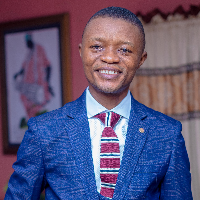
Oluwasegun Ogunsakin
Project Manager, Bellwether International
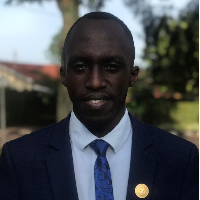
Amon Muberuka
co-founder and Executive Director at Rwanda Peace Development
The Youth Work’s role in the encouragement and development of Peace in Rwanda
Through this session, participants will reflect on the key role that Rwanda Youth Work has played in the encouragement of Peace and development in Rwanda as a result of The role the government of Rwanda has played in establishing a relevant Youth policy, building institutions’ capacity to consider the empowerment of young people in post-genocide Rwanda a priority not only to avoid a repeat of what happened in the past but also include young people in the leadership and co-creation of Rwanda’s journey of recovery and development
______________________________________________________
Assessing Role of Youth Inclusion on Sustainable Peace and Security in Nigeria
The role of youth inclusion in every society must be emphasized because there is a need to have the full participation of the youths in achieving sustainable peace and security. Nigeria has witnessed unprecedented conflicts, terrorism attacks, violence, and insecurity, making the country chaotic. But the need to understand action and policies that will include youths in promoting and achieving sustainable peace and security in Nigeria is essential. The youth of a nation is the basic human capital that the country can utilize for socioeconomic development.
Young people are the main actors and drivers of sustainable peace and security on the global scene. Nigeria is the sixth most populous country in the world, with more than 200 million people. However, Nigeria has an average age of 18.4 years. This corresponds to 70% of the population that is under the age of 30. Through this, Nigerian youths have promoted peace and security in various disciplines within and outside the country. Therefore, this study will examine the role of youth inclusion in sustainable peace and security in Nigeria.
Meanwhile, the following are expected from the presentation during the 4th Commonwealth Conference on Youth Work 2023:
1. What is youth inclusion's role in sustainable peace and security in Nigeria?
2. What are the contemporary challenges facing youth inclusion in sustainable peace and security in Nigeria?
3. How can youth inclusion be supported in achieving sustainable peace and security in Nigeria?
Furthermore, this study will fashion out various action works that youth in Nigeria have been doing in promoting sustainable peace and security even in the face of challenges. The need to appreciate youth involvement in development and promotion of peaceful co-existence in Nigeria will be presented and connected for further research. This study concluded that the Nigerian government must develop a strong framework that should be implemented to see how youths can be involved in politics and nation-building.
 July 11, 2023 15:00
July 11, 2023 15:00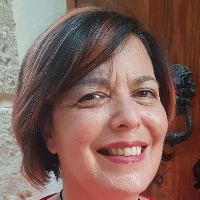
Miriam Teuma
CEO Malta Youth Agency/ CDEJ Bureau Council of Europe
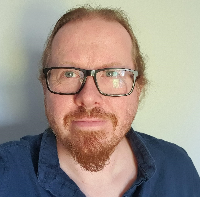
Roy Smith
Medway Youth Service, Operations Manager
Supervision – A tool to strengthen the quality of Youth Services
Supervision can provide a structured framework for professional development, support, and accountability. It helps youth workers enhance their skills, gain new insights, and navigate complex situations effectively. It also ensures that youth workers adhere to ethical standards and best practices, while promoting their own well-being and self-care.
The process of supervision in the Maltese Youth Agency was adopted to advance the professional profile of delivery after the youth work profession act was enacted in 2014 to make provision for the regulation of the youth work profession. The inclusion of reflective practice supervision constitutes a response that focuses on the development of practitioners, the sharing of practice, as well as providing a means to assess practice effectiveness, safety and accountability.
_________________________________________________________
Developing approaches to youth work supervision
This session will explore the work of a network of practitioners and academics from the UK, Malta, Malaysia, Singapore, Zambia, and Australia who have been collaborating to develop approaches to Youth Work Supervision. It will discuss attempts to develop a framework for youth work supervision, aiming to improve how it is applied and understood in practice. The framework emphasises the collaborative nature of supervision and its potential not only to explore practice but to develop and quality assure the judgement of youth workers. Participants will discuss different aspects of youth work supervision and have the opportunity to engage and reflect on a micro-supervision exercise, where they will be able to learn through doing.
 July 11, 2023 15:00
July 11, 2023 15:00Health Based Youth Work – insights into the who, where and what of Health Based Youth Work across the UK
One of Youth Work’s great strengths is that it offers a high level of flexibility – its principles can be transferred across different contexts, including health. Against the backdrop of a national, ongoing move towards more integrated, holistic and person-centred approaches to healthcare, it is becoming increasingly common to use Youth Work practices within the allied sector of health services/settings. However, very little is currently known about how many health-based Youth Workers there are, the challenges they face and what constitutes best practice. The Health Based Youth Workers’ Group is a unique network of professionals who deliver Youth Work in hospitals and/or other healthcare or health-based settings (or who have a focus on young people’s health) who regularly come together to share experience, ideas and expertise. Since November 2022 we have been collecting quantitative data about members via detailed questions on our sign-up form to help us to better understand the current landscape. This presentation will share the data gathered thus far, which explores the who, where and what of health-based Youth Work across the UK. This is the first deep dive of its kind, providing exclusive insights from over 100 individuals. Many of these professionals are the only qualified Youth Worker in the health setting in which they work – some members tell us they do not always feel their specialist input is heard and valued within multidisciplinary teams. We hope, by sharing this initial data, to give them a voice. The presentation will also aim to raise awareness of the extent of health-based Youth Work, spark discussion about its importance, and forge links with health-based Youth Workers in other Commonwealth countries so we can all learn from each other and ensure our practice is as beneficial as possible for young people.
 July 11, 2023 15:00
July 11, 2023 15:00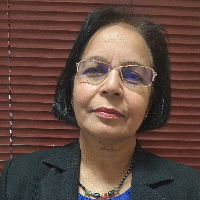
Dr Mrs Aumwatee Sreekeessoon
Director of Youth Affairs, Ministry of Youth Empowerment, Sports and Recreation, Republic of Mauritius
Training for self-engagement in youth programme delivery
The presentation consists of a reflection on training of Youth workers involved in two programmes run by the Ministry of Youth Empowerment, Sports and Recreation, Mauritius, namely the National Youth Civic Service (NYCS) and the Youth Health Promotion currently engage intensely with young people to deliver the programmes. Research on best practice shows that developing connections and engaging with the programme, and as a result with the beneficiaries creates the required space and conditions for effective delivery. The aim of this piece of research was to investigate to what extent youth workers engaged in the process, which factors actually promoted this engagement and which factors inhibited it. This exploration was considered vital for enhancing the effective delivery of these programmes through appropriate training and learning opportunities.
 July 11, 2023 16:15
July 11, 2023 16:15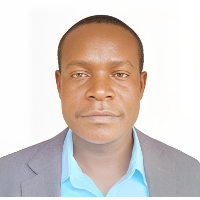
Michael Asudi
Board Members of Commonwealth Alliance of Youth Workers Association
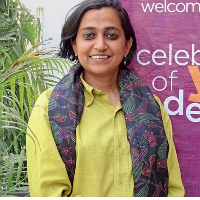
Ashraf Patel
Co-Founder ComMutiny - The Youth Collective and Pravah, India
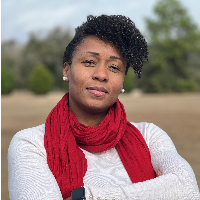
TanYah Merrick
Jane Zintl
Korowai Tupu, the professional association of Aotearoa, New Zealand.
Collective Voices of Youth Workers
The Commonwealth Alliance of Youth Workers Associations bring voices of youth workers from across members nations to share stories and experiences from practice to collective action and advocacy. Setting out the benefits of the development of professional associations, CAYWA will demonstrate how this can be a driver for political and policy change for the good of young people nationally and globally.
Michael Asudi, Chairperson, Association of Professionals in Youth Affairs –Kenya (APYA), and Board Members of Commonwealth Alliance of Youth Workers Association (CAYWA) and Organization of Africa Youth (OAY)
TanYa Merrick aka TanYah Global
 July 12, 2023 09:00
July 12, 2023 09:00
Nimco Ali OBE
Chief Executive, the Five Foundation
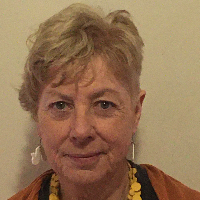
Emeritus Professor Robyn Broadbent
Chair of the Commonwealth Alliance of Youth Worker Associations
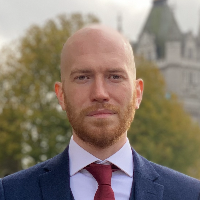
Jason Allen
Founding Director, Mary’s Charity
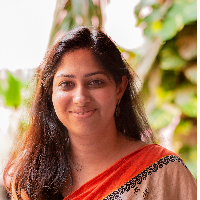
Kanika Sinha
Convener, ComMutiny - The Youth Collective Anchor, The vartaLeap Coalition
Giving Voices to The Voiceless
Policy, culture and context can lead to unfair and unequal societies. For some young people, multiple facets of identity can lead to oppression, marginalisation and danger. Exploring political activism to end violence against women and girls (specifically through the work of The Five Foundation) demonstrates the power of the individual and the collective to take action and fight for fairness and equality.
_____________________________________________________
Community Youth Work in Practice
This panel will discuss how place-based and community youth work can work to address social inequalities and affect change. Exploring the positive commitment to the values that underpin youth and community work.
 July 12, 2023 10:30
July 12, 2023 10:30 July 12, 2023 10:30
July 12, 2023 10:30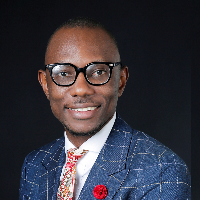
Olalekan Oshunkoya
Executive Director,Citizen Commons International
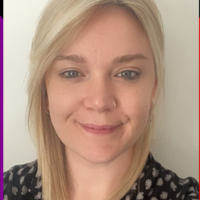
Bex Perry
amplifi Programme Manager, National Youth Agency
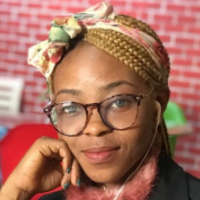
Benita Ezumezu
Citizen Commons International, Senior Programs Associate
The Role of Technology in Advancing Youth Work in Nigeria: A case review of Youth Action Do Something Social Impact Hub
through the #EndSARS protests to demand accountability from our leaders. The creation of the Youth Action Do Something portal was our response to the yearnings of youth stakeholders to look within and innovate around capacity development for increased youth development especially in our roles as community leaders, changemakers and activists. Using the conceptualisation, design, development and deployment of the Youth Action Do Something Social Impact Changemakers Hub, this case study review presents a deep dive into the power and potential of digital technology in mobilising, educating, equipping, empowering and engaging different stakeholders in the positive youth development ecosystem. The Hub was developed as a digital knowledge exchange platform that connects, mobilizes, empowers and resource young Nigerians with free resources and training to become active citizens and social change leaders. The case analysis will
Reflect of the process of creating and deploying the digital platform and the lessons and opportunities from that process.
The amazing result of adoption, what worked and didn’t and why? And the changes we adopted to address initial shortcomings.
The power of Community, Connection in Digital Community Building - the use of Community activators and peer leaders to drive use and adoption.
The amazing reach and mileage recorded and tools, resources that led to these outcomes.
_______________________________________________
Getting ahead of the curve: The future of Digital Youth Work with internet generation
This interactive workshop will explore emerging Virtual Reality (VR) and Augmented Reality (AR) technologies and their impact on Youth Work practice.
The workshop aims to explore the potential of these immersive technologies in enhancing youth work practice and considers the application, benefits, challenges and considerations associated with VR and AR in youth work settings.
This session is in-person only.
 July 12, 2023 10:30
July 12, 2023 10:30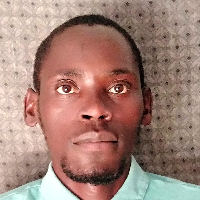
Champa Munembo
Pro -Active Youth Workers Association of Namibia
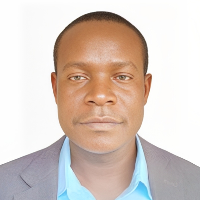
Michael Asundi
Chairperson, Association of Professionals in Youth Affairs –Kenya
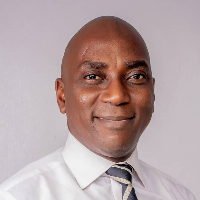
Ben Duntoye
President, Nigeria Youth Workers Association
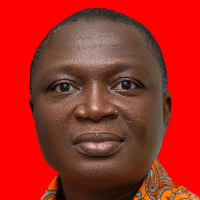
Nelson Owusu Ansah
Deputy Chief Executive, National Youth Authority, Ghana
The Session will promote and amplify the voices of youth workers in Africa for the development of young people. It will explore the collaborations and interdependent areas of youth work and related issues more broadly. It will be an opportunity to share practical examples from the African perspective for the promotion of youth work in Africa. The sub themes of the session align to CYP’s and CAYWA’s Strategic objective to support youth workers to be productive, effectively professionals and economically empowered to be engaged and responsible, to embody and embrace leadership.
 July 12, 2023 10:30
July 12, 2023 10:30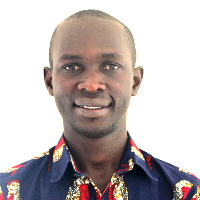
Eric Omwanda Nehemiah
Founder and Executive Director at Mathare Foundation
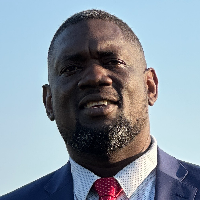
Gavin Myers
Research Student, Open University
The Power of Youth Work: Forging a Sustainable and Peaceful Common Future
My session will focus on the systemic challenges that young people from underdeveloped, developing and small states face in their quest for a better life. How their governments have neglected them to put selfish interests on the forefront. The session will address how charitable organizations are playing an instrumental role in filling the gaps that have been created. We shall also speak about our model of intervention, theory of change, our findings and recommendations in matters related to young people and skills training.
_________________________________________________________
Treat the yutes right! Building the Capacity of Community Heritage Sites as Youth Serving Organisations in Dispersed Rural Communities in Jamaica
The paper examines the youth work strategies employed by community heritage sites to engage and empower youths in dispersed rural and peri-urban communities in Jamaica. It examines the application of modified Freirean Adult Education Model (FAEM) (Freire, 1996, Freire, 2021) to community led youth engagement by three community heritage sites – one in a peri-urban community another in an Afro-Caribbean indigenous community and the other in a deep rural dispersed community. It examines the critical praxis of community youth workers and activist researchers in Jamaica, offering insights on the strategies being employed to engage youth and support their empowerment using a suite of culturally relevant participatory approaches and partnerships (Niaah, 2016, Sinclair-Maragh and Bernard Simpson, 2021). The research offers an examination of the contemporary youth work context in Jamaica – decline and consolidation of state coordinated youth work, perniciously high violence and information asymmetry that have a debilitating impact on the future and present quality of life of youth. The research then shows the suite of approaches FAEM activities and programmes being utilised by the community heritage sites and offer insights on their impact, challenges, and strategies in the community of practice (Brodber, 1997, Brodber, 2004). It also shares insights on local and international partnership building strategies, the reinforcing role community, identity and diaspora play in forging a sustainable shared future for themselves and the community (Mohajer and Earnest, 2009). The research shows the critical role youth engagement plays in building sustainable futures across different spaces in the Commonwealth and how using a modified FAEM approach as detailed could complement and strengthen youth work being done in similar context to serve young people (Thomas, 1996). Given the participatory cultural and spatial lenses, the community led youth work practices and the collaborative, engaged model, it adds to the body of knowledge available for use by Commonwealth Youth Workers, especially those working in the Global South, indigenous communities and in the face of resource challenges.
 July 12, 2023 10:30
July 12, 2023 10:30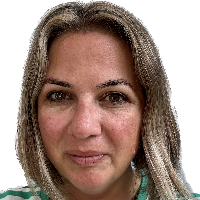
Rachel Janaway
Targeted Youth Worker, Dorset Council
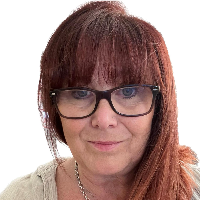
Sarah Whilton
Social Care Service Manager, Dorset Children’s Services
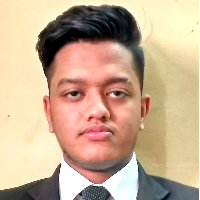
Sarthak Roy
Assistant Research Officer, Governance and Peace Directorate, Commonwealth Secretariat
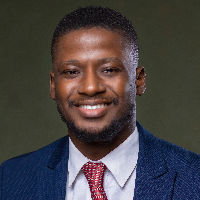
Mukhtar Adesunkanmi
Assistant Research Officer, Governance and Peace Directorate, Commonwealth Secretariat
Chesil Hidden Girls: Safeguarding in Non-Traditional Settings
Transnational movements such as #MeToo, #BlackLivesMatter and #FridaysforFuture show how quickly, and effectively young people can organise and make themselves heard across national and regional borders. Solomon Islander and young legal scholar Solomon Yeo was one of the initiators of the campaign leading to the UN resolution requesting for an advisory opinion on climate change from the International Court of Justice being adopted by consensus in March 2023. The 1992 Rio Declaration suggests that young people would soon become protagonists in international law-making.
In our presentation we argue that facilitating a ‘turn to youth in international law’ would make international governance more democratic and legitimate, as well as foster intergenerational justice. We develop those claims by paying particular attention to the field of peacebuilding, climate justice and sustainable development. Ultimately, we suggest that what the youth may lack in years of experience, they contribute instead nuanced and grassroots perspective in the formation of policies, laws, and conflict resolution that reflect the realities of today’s world.
 July 12, 2023 10:30
July 12, 2023 10:30 Dr Richard McHugh
Youth Work Specialist
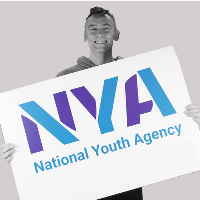
Robert Morrow
Youth Work Specialist, National Youth Agency
Is there potential for utilising Reality Pedagogy in youth work training and education
Participation, both as voluntary engagement and as a practice for coproduction, is central to youth work (cf. Davies, 2005), and has grown high on the agenda in other areas such as education (Smith, 2007) and youth justice (Smithson et al, 2021). Yet despite this, much of the teaching and learning in youth (and cognate fields) training, centres around rote learning. Perhaps to a lesser degree than many disciplinary areas and, likely, with much more erosion of the ‘teacher – learner’ dialectic than most disciplines. In considering issues around participation in the context of youth work training and education, this workshop will explore Dr Chris Emdin’s (2011 and 2017) work on ‘Reality Pedagogy’, which strives to further engage learners in participating in their own education and through their own lived realities. Reality Pedagogy is based around five key tenets known as the ‘5 Cs’: cogenerative dialogues; coteaching; cosmopolitanism; context; content (Emdin, 2011, 2017). In particular the workshop, through active engagement with the ‘5 Cs’, will seek to explore the possibilities and potential of Reality Pedagogy in youth work training and education as a means to seek ways to better reflect the ethos of youth work practice in youth work training. Likewise, the workshop seeks to explore the potential for Reality Pedagogy to help keep youth work trainers /educators up to date with what is going on in the real world of contemporary youth work.
 July 12, 2023 10:30
July 12, 2023 10:30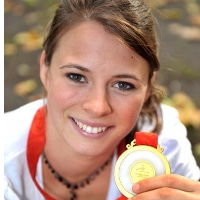
Liz Johnson
Athlete Mentor, Dame Kelly Holmes Trust
Mentoring and Disabilty
Liz Johnson is one of the UK’s most well-known Paralympic swimmers, winning an impressive 13 medals at various events over her career. She is now a popular contributor to sporting broadcasting on Channel 4 and the BBC and a familiar face on entertainment shows including Celebrity Masterchef and The Last Leg. Lis is an Athlete Mentor with the Dame Kelly Holmes Trust.
The Dame Kelly Holmes Trust believe athletes are inspirational role models. The positivity of their can-do, never quit attitude could benefit us all. In this session Liz will share how the Trust provide specialist training to enable sportspeople like her to harness their unique skillset and pass it on to others and her experience working with young people
 July 12, 2023 13:00
July 12, 2023 13:00 July 12, 2023 13:00
July 12, 2023 13:00
Dr John Tan
CARE Singapore, Executive Director
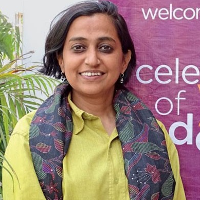
Ashraf Patel
Co-Founder ComMutiny - The Youth Collective and Pravah, India

Shantha Abeysinghe
Senior Lecturer, Open University of Sri Lanka
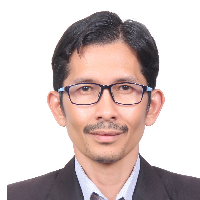
Jufitri bin Joha
Chairman of the School for Community & Youth Work Development Malaysia
Nurturing youth work in Asia - Experiences in working on policy and practice across sectors
This session features the experiences of four CAYWA member associations from Asia – India, Malaysia, Sri Lanka, and Singapore – on forging partnerships across sectors, and national boundaries, involving elements like government, policy, public, private, professional, educational, academia, and youth workers, for the betterment of youth work in their respective countries.
 July 12, 2023 13:00
July 12, 2023 13:00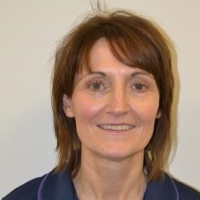
Dr Marie Marshall MBE
Manchester University Foundation Trust
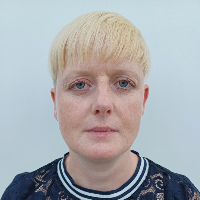
Nicola Rigby
Senior Youth Worker for the MFT Youth Service
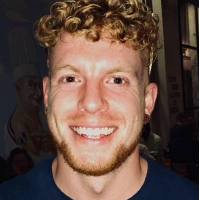
Sean Monaghan
Director, SaferNow
They make heavy stuff lighter”. Youth workers in the hospital setting: a service evaluation
The presentation will present the findings of a service evaluation on what the role of the youth worker offered to young people in the hospital setting across the United Kingdom and what differentiates the role of the youth worker from other healthcare professionals, as described by young people, parents, and members of the existing multi-disciplinary team.
____________________________________________
SaferNow - Hospital-based violence intervention
This session will explore the truly privileged positions held by those who work within hospital-based violence intervention, not only how the model came to be, but how the work looks and feels. Whilst certainly not classic youth work per se, many of the principles of youth work are applied within this context to ensure holistic and young person-centred support, especially important against the backdrop of both systemic and interpersonal trauma.
 July 12, 2023 13:00
July 12, 2023 13:00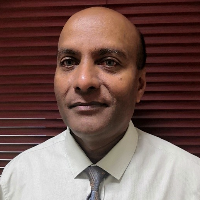
Manoj Buddhu
Assistant Director of Youth Affairs Ministry of Youth Empowerment, Sports and Recreation, Mauritius

Kanika Sinha
Convener, ComMutiny - The Youth Collective Anchor, The vartaLeap Coalition

Pooja Jain
Co-Lead, Narrative Building and Campaigns, ComMutiny - The Youth Collective Member, The vartaLeap Coalition
Youth Ambassadors Programme-Mauritius
Very often, several youngsters are unaware of policies, legislations or even programmes of Government that have been put in place for the benefit and empowerment of the youth. In addition, these youngsters highlight that there is a general lack of interest among our youth in social and political matters of our country. During the course of discussions and consultations, the proposal to have a group of young people who would act as youth ambassadors emerged.
The objectives of the Youth Ambassador programme are as follows:
________________________________________________________
Being a 'Jagrik' – Nurturing a collective vision of Youth Work in India
The session offers an opportunity to explore and inquire into a vision of a youth-centric approach to social transformation. Hosted by the VartaLeap coalition, the session makes an informed case for a deeper reflection into nurturing place-based, contextually relevant strategies towards cultivating value-based youth leadership and change. Through a presentation of case examples, you will be soaking in the collective wisdom of 170 non-profit organisations from India on nurturing a young Jagrik*- A self-awakened, aware, and active citizen who is making the change and being the change.
The session shall showcase a grounded architecture of key principles, strategies and practices that have enabled the VartaLeap coalition in India to nurture a meaningfully collaborative space for organisations, individuals, and young people to discover, co-create and co-learn from collective experiences of facilitating authentic civic action at local and national scales.
________________________________________________________
Samvidhan LIVE! Be a Jagrik - Affecting Social Change through Constitutional Literacy: A Case Study
 July 12, 2023 13:00
July 12, 2023 13:00
Robin Lockhart
Catalyst In Communities, CAYWA & IYW
The Art Of Perception’ - When we change the way we see the world, the world we see changes…
These days it seems there are so many problems that need fixing...
We are living in a time when it feels that there are so many things wrong; when young people are struggling to live lives that are positive, healthy, productive and happy.
Wellbeing issues, mental health challenges, violence (to self and others), drug / alcohol abuse, gangs, unemployment, radicalisation, homelessness, environmental doom... it seems that there is an almost overwhelming deluge on a daily basis in the world’s media...
All of these issues are real and we must find the solutions.
They all come down to well-being.
The way we see ourselves and our world is the decisive factor in determining how we feel.
Changing our perspective directly influences our emotional state.
All change begins in the mind.
What if the biggest problem is actually the ‘lens’ people are viewed / look through?
“If we see young people only as problems to be fixed and that external factors such as their environment or their background are the root causes of their problems we miss out on the very solutions to these problems...” R. Lockhart
 July 12, 2023 13:00
July 12, 2023 13:00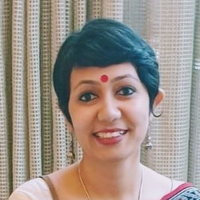
Bijta Devsharma
World YWCA
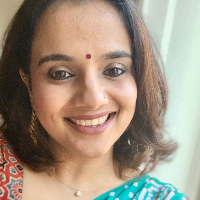
Dr Suchi Gaur
World YWCA
Centering youth in youth-led: a feminist consultation methodology experience
Less than 1% of gender funding reaches feminist and women-led movements resulting in a landscape that is far from adequate in advancing rights and justice and where women continue to be underrepresented. Moreover, women’s voices, especially those of young women, do not find space within such movements and often go unheard. It is in this context that the Feminist Consultation Methodology (FCM) was first conceived and designed as a youth-centric and youth-led approach by World YWCA in 2018 and published in 2022 after a participatory process of co-creation with women and young women from around the world. Till date it has been beta-tested and implemented with more than 1800 young women and youth across the globe. The case study presentation will showcase two studies conducted in Bangladesh and India highlighting how co-created, women and youth led evidence processes, can help generate necessary community-led initiatives around policy, process and programmes on ground. The findings and use value from both the case studies indicate the usefulness and highlight the relevance of the decentralised, community-led FCM methodology and how it can be used for amplifying voices of the youth for finding locally-based solutions. In both the studies, the six-step FCM process was used within their unique contexts and adapted for better sense-making in an iterative manner. World YWCA has evidence to demonstrate the use of the FCM beyond evidence generation for research purposes, where youth, especially youth of marginalised and under-represented communities can co-lead project creation, evaluation of initiatives and co-design of tools, with them leading processes end to end. The presentation will showcase light on other use-cases around the adoption of the FCM methodology.
Contemporary Gender and Development Issues in Youth Work – Perspectives from the Trinidad and Tobago Gender Machinery
The Gender Affairs Division, Gender and Child in the Office of the Prime Minister in the National Gender Machinery for Trinidad and Tobago. The Machinery designs and coordinates several gender initiatives to mainstream gender and gender equality in all of government and society. This panel will explore case studies that include insights from development practitioners on the gendered dimensions of youth work and interventions. The three case studies proposed will explore youth-focused male programming, the impact of technology facilitated gender-based violence on young people’s lives and menstrual hygiene and period-friendly spaces as a human right. Insights in these thematic areas are significant in today’s landscape to evaluate the extent to which programmes, particularly state-led programmes, advance gender equality in a new global funding and development context that emphasises the importance of gender equality indicators in planning.
 July 12, 2023 15:00
July 12, 2023 15:00Ministerial Address
Global Collaboration for the Future of Youth Work
Panel discussion on the benefits of collaboration and encourage exploration of how barriers to this can be overcome.
___________________________________________________
Call to Action and Pledges
Throughout the conference, we will explore what their learnings mean against the backdrop of the conference theme ‘The Power of Youth Work’ and the subthemes.
As the conference draws towards a close, this session will feedback on some of the key pledges made and motivate people to continue engagement with these beyond the conference, into their everyday working lives. It will set out next steps for action and a timeline for future activity and connectivity.
___________________________________________________
Closing Remarks
Content Disclaimer: The 4th Commonwealth Conference on Youth Work has been convened by the National Youth Agency on behalf of the Commonwealth Secretariat. The event aims to provide an open forum for the sharing of a wide range of theories and practical approaches to youth work. The opinions expressed during presentations and in breakout sessions are solely those of the individual speakers and delegates, and may not be endorsed by the National Youth Agency or its employees. The National Youth Agency cannot be held responsible for any false facts, errors and controversial opinions expressed at the conference.
The conference will take place on the 10th, 11th and 12th July 2023 at the White Knight Campus, Reading University.
Live delegates will be invited by the Commonwealth and the NYA and will receive unique links to register their attendance. There will be a limited number of Self-Funded tickets for the in-person conference at a cost of £1,100, these do not include the cost of accommodation. Attendance at the virtual conference will be available for free to anyone who registers.
Invited delegates will be accommodated at the University of Reading, White Knight Campus. Self-funded attendees will need to make their own accommodation arrangements
Accommodation will be provided on the evening of Monday 10th July until the morning of Wednesday 12th July (2 nights').
Self-funded attendees and those who do not want to stay at university accommodation are recommended to book their own accommodation at one of the hotel’s listed here.
They NYA will be responsible for allocating rooms. It is planned that delegates will be accommodated in single rooms. Room allocations will not be made available before the conference. Accessible rooms will be available and allocated where requested. Single Sex floors will be provided where requested.
Please visit the Venue page for more information
To select your sessions, just login, visit the Agenda, select your session, then click 'add to calendar'
See Agenda for session times
Breakfast and lunches will be provided for in-person attendees. Dietary requirements specified on registration will be catered for
The White Knight Campus is fully accessible [awaiting info from venue] If you have specific access requirements, please contact conference@nya.org.uk
The virtual conference is open to anyone who would like to attend.
Register Here.
Yes, you will be able to select which sessions you would like to join. Once you’ve selected your session you will be able to add them to your personal calendar.
Sessions will be both live streamed and available On-Demand. To join a session, just log in with the credentials sent to you via email when you registered and click on the appropriate session.
Yes, there will be a number of ways to interact in live-streamed sessions including polling, Q&A and live discussions.
The Whiteknights campus is approximately two miles and around 40 minutes on foot from Reading Station. Please allow a further 10 minutes to reach a specific building or site once on campus.
Arriving by train
Reading train station is a mainline train station and is easily accessible from most other places in the UK.
There are direct rail links from many major cities, including Birmingham, Manchester, Glasgow, Cardiff, Bristol, and Exeter, as well as a number of routes through London.
Travelling from London
If you are travelling from or via London, the quickest route to take is from London Paddington station.
Trains from London Paddington to Reading run approximately every 15-20 minutes throughout the day and the average journey time is around 30 minutes.
Find out more at the National Rail website.
Arriving by car
Mereoak Park and Ride
Junction 11 of the M4, RG7 1WJ
Reading University have partnered with the Royal Berkshire Hospital NHS Trust and Reading buses to offer the 300 Park and Ride service. The service picks up at Mereoak and sets down at Christchurch Green, a seven-minute walk from the centre of Whiteknights Campus. This initiative aims to reduce air pollution and congestion, and will be free for students and staff of the University. Members of the public can pay to use this service.
Find out more details including fares.
The Whiteknights and London Road campuses in Reading are approximately 1.5 miles from the M4 motorway. Our Greenlands campus is close to Henley.
Whiteknights campus
Sat nav postcode for Shinfield Road and Pepper Lane entrances: RG6 6UR
Sat nav postcode for the Earley Gate entrance: RG6 7BE
Parking
Visitors to our campuses on Monday to Friday between 8am and 5pm should be aware that parking needs to be prearranged and that a parking permit must be displayed. Please contact the member of staff or department you are visiting and ask them to arrange a visitor's parking permit.
Permits or prearranged parking are not required outside of these times.
Arriving by plane
Reading is well connected to both London Heathrow and London Gatwick airports.
London Heathrow
RailAir offers a direct coach service that runs between Heathrow Airport and Reading town centre. Coaches offer free Wi-Fi and at-seat USB charging, and operate frequently: up to every 20 minutes on weekdays, and every 30 minutes at weekends.
For more information, please visit the RailAir website.
London Gatwick
A direct train service runs between Gatwick airport and Reading station. Trains run once an hour, during the day. and take about 75 minutes. For more information, please visit the National Rail website.
All those attending the Commonwealth Conference are advised that photographs, videos, and/or recordings may be taken by the National Youth Agency or its authorised representatives. By attending the event, you grant the National Youth Agency and its affiliates the irrevocable and unrestricted right to use, reproduce, publish, and distribute these photographs, videos, and/or recordings for promotional and marketing purposes. This includes, but is not limited to, use on websites, social media, advertisements, brochures, and other promotional materials.
Release of Liability: You release National Youth Agency, its officers, directors, employees, volunteers, contractors, and representatives from any claims, damages, or liability arising out of the use, reuse, publication, or distribution of the photographs, videos, and/or recordings, including any claims for defamation, invasion of privacy, or infringement of any intellectual property rights.
Waiver of Compensation: You acknowledge that you will not receive any financial compensation or royalties in connection with the use of the photographs, videos, and/or recordings.
Right to Refuse: National Youth Agency reserves the right to refuse to photograph, video-record, or include any individual or group in the event materials for any reason, without providing justification or explanation.
Assumption of Risk: You understand and accept that participating in the event involves certain inherent risks. You voluntarily assume all risks associated with attending the event, including but not limited to any risks related to the use of photographs, videos, and/or recordings.
Privacy Protection: National Youth Agency will make reasonable efforts to protect your privacy and will not sell or disclose your personal information to third parties without your consent, except as required by law or for the purposes outlined in this disclaimer.
Severability: If any provision of this disclaimer is found to be invalid or unenforceable, the remaining provisions shall remain in full force and effect.
By attending the event, you acknowledge that you have read, understood, and agree to be bound by this Photo Event Disclaimer.